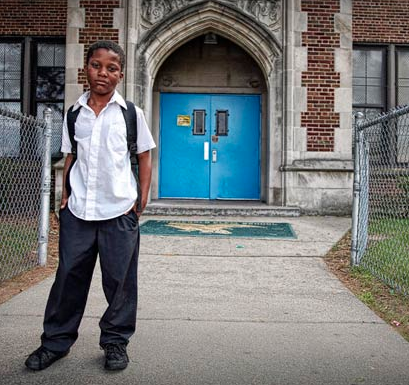 Creative Commons / Roche Photo
Creative Commons / Roche Photo
Melinda Clynes, has written an article for Michigan Night Light (whose tag line is "Illuminating Solutions for Children") titled "Repairing Detroit Through Restorative Practices." Clynes begins by quoting Henry McClendon, Michigan Regional Coordinator for the IIRP:
According to Henry McClendon, program officer at The Skillman Foundation, Detroit doesn’t have a crime problem; we have a relationship problem.
He believes that crime is the symptom, while broken relationships are the problem.
When crime happens, we treat the symptom. We ask what law was broken, who broke it, and what kind of punishment it deserves. It keeps victim and offender apart.
The same thing happens in schools. Students get in trouble, and they’re suspended or expelled. Once back at school, the perpetrator is still angry; the victim is still angry – or afraid. And, the suspended student’s chance of graduating on time begins to buckle.
But what happens if, instead of using an adversarial approach, we deal with conflict using a restorative approach that McClendon believes is more solution focused – one that treats the problem?
The restorative process brings victim and offender together to acknowledge the harm that occurred, study its impact, and think through what needs to happen to make things right. This restores balance and justice and prevents harm from happening again.
“I'm not saying we don't have any jails, and we don't have any police officers,” says McClendon. But, “if all we do is come up with stricter laws – you know get tough on crime, zero tolerance – you can't hire enough police and you can't build enough jails to solve that problem.”
McClendon is an expert on Restorative Practices, which in its simplest form is a process that builds community and social coherence. He has regionally represented the International Institute for Restorative Practices and trained many local folks on its merits.
And he’s on a personal mission to see Detroit become the first large, urban restorative city in the country. One obvious place for that change to start is in schools.
The piece continues with discussion of Plymouth Charter School's RP implementation, impact of RP in the classroom, dramatic reductions of suspension and expulsions, and scaling up implementation to include not only schools but also the police department and the juvenile justice system.
I highly recommend reading this article, which is one of the most powerful short pieces I've read about restorative practices implementation, by clicking here.
A previous piece about restorative practices in Detroit by Melinda Clynes can be found here.
